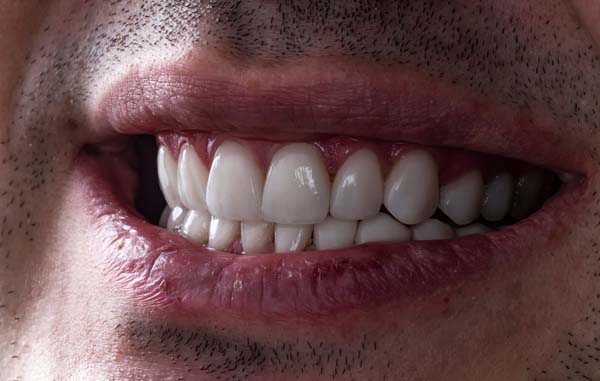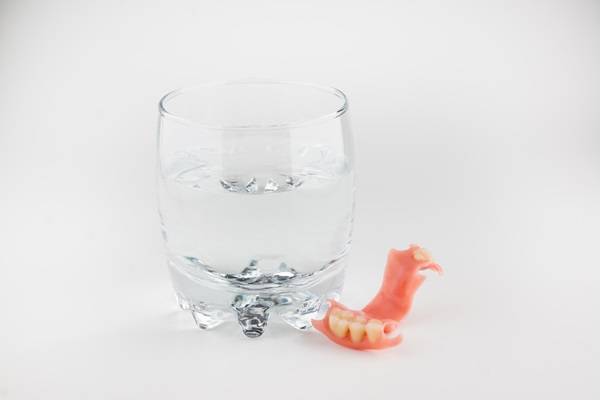6 FAQs About Full Mouth Reconstruction

Considering a full mouth reconstruction? This treatment is recommended when individuals have missing or severely decayed teeth. Read on to learn more about what is involved in this type of oral restoration.
6 Things to know about full mouth reconstruction
Outlined below are a few common questions and answers about full mouth reconstructions. It can be helpful to review the following information when considering this treatment.
1. What does a full mouth reconstruction involve?
A full mouth reconstruction involves replacing, rebuilding, and reconstructing the oral cavity through different procedures, such as bridges or implants. Functionality, esthetics, and form are all the dentist's focus when performing a full mouth reconstruction.
2. How long does the full mouth reconstruction process take?
The process varies for each person, however, most individuals require multiple appointments in order to get the desired results. In some cases, the dentist may be able to successfully reconstruct the oral cavity in one visit, however, other times, multiple appointments over a few weeks or months may be necessary.
3. What is recovery from full mouth reconstruction like?
Recovering from varies per patient, however, for the most part, there are a few general expectations that are good to be aware of. Individuals will experience discomfort, sensitivity, swelling, and inflammation, all of which require constant attention to remedy and manage. General dentists recommend the following for a successful recovery:
- Rinse with saltwater or a prescribed rinse to keep the mouth clean and disinfected
- Eat a diet consisting of soft foods or liquids
- Avoid touching the wounds
- Take pain medication, whether prescribed or over-the-counter
- Change gauze carefully and gently
4. Is a full mouth reconstruction painful?
It can be, yes. However, general dentists want individuals to understand that the pain is temporary and can be managed with medication and at-home remedies. Individuals will not feel pain during the full mouth reconstruction itself, but rather after the procedures have been completed. The dentist can prescribe pain medication, as well as oral rinses to keep the mouth clean during the healing process. Rinses eliminate the need to brush as usual, which may induce further discomfort.
5. Are there any benefits to full mouth reconstruction?
The benefits of full mouth reconstruction include the ability to replace an entire arch of teeth all at once, which can be convenient for individuals looking to get everything done at one time. Additionally, the treatment can significantly restore bad oral health which is oftentimes the result of having missing teeth.
6. What are the risks of full mouth reconstruction?
There are not a lot of risks associated with full mouth reconstruction, however, general dentists do like patients to know that there is the potential for complications to occur. Most treatments involve the placement of dental implants in order to replace missing teeth. Dental implants are almost always successful, but in some rare situations, they may be rejected by the body, which can result in discomfort and a need for more in-depth treatment.
Getting started with full mouth reconstruction
When looking to learn more about the full mouth reconstruction process, it is best to consult directly with a general dentist. Further questions can be appropriately addressed and an evaluation can be done in order to identify the best place to start. Reach out today get scheduled for an appointment.
Request an appointment here: https://www.schommerdental.com or call Schommer Dental at (563) 272-2331 for an appointment in our Davenport office.
Check out what others are saying about our dental services on Yelp: Full Mouth Reconstruction in Davenport, IA.
Recent Posts
One of the most popular reasons people seek cosmetic dentistry is to improve the color of their teeth. We all start with pearly white teeth, but they pick up stains and discoloration over the years. Fortunately, there is a cosmetic dentistry treatment for any type of stains your teeth pick up.There are various reasons why…
Crown lengthening is a cosmetic dentistry treatment that is used to address teeth that look too small due to being covered with excessive gum tissue. The result is a dental condition known as a gummy smile.Crown lengthening is also used for therapeutic reasons. The treatment can be used to expose the lower part of a…
Learning more about available cosmetic dentistry options is the first step to getting a new smile. One of the more common problems people experience that make them want to get a new smile is that they are missing one or more of their teeth. Dental implants are a popular tooth replacement option due to the…
There are a handful of cosmetic dentistry procedures that can be used to improve the color of a person's teeth. Most people would love to have pearly white teeth, but that is easier said than done. Teeth are regularly exposed to foods and beverages that can stain them. They are also exposed to certain medications…


